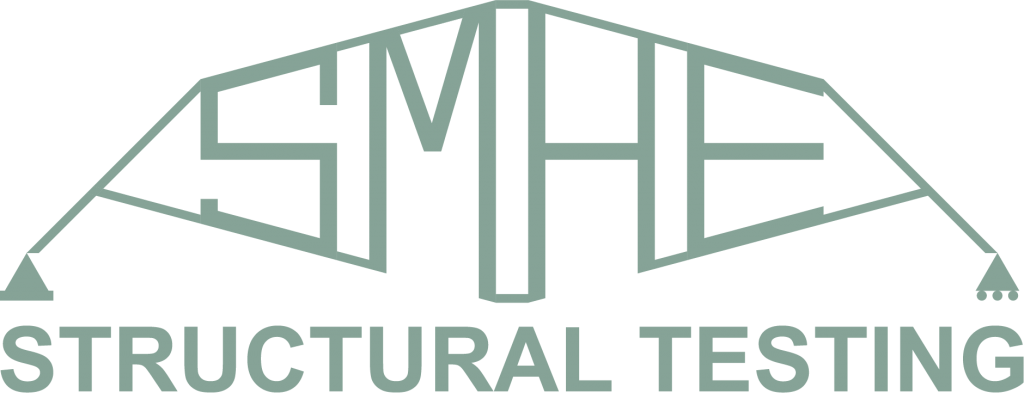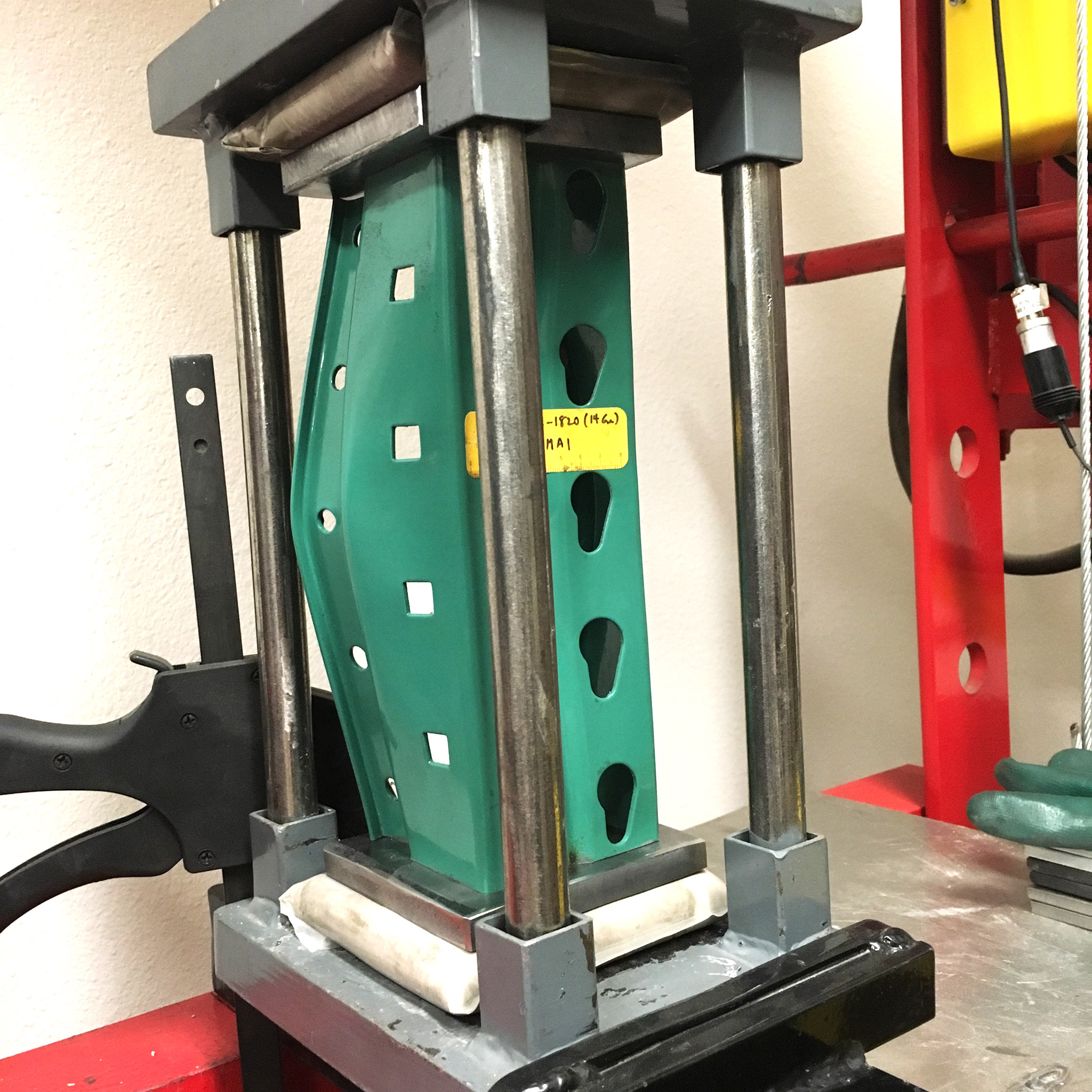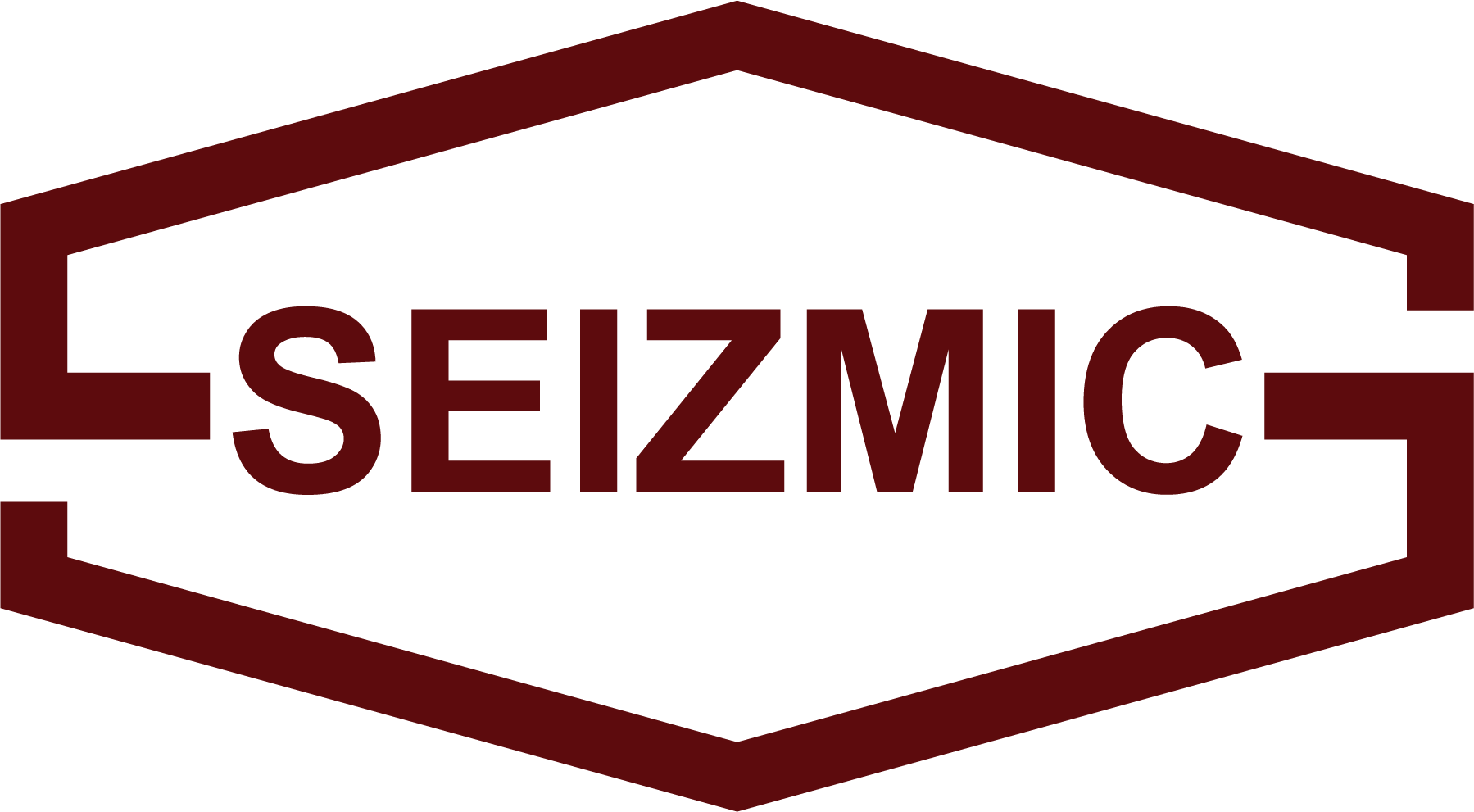
Structural testing of Material Handling Engineered products
What We Do
Structural Testing of Material Handling Engineered products (SMHE) is in the business of providing material handling testing services primarily to engineers, manufacturers, and inspectors. Our services primarily include product testing, quality control testing and destructive testing for recognition by approval agencies.

Product Testing
As an accredited testing facility we can implement RMI and SMA design standards to ensure every component is compliant. In addition, we understand how important R-Mark certification is for the material handling industry, ensuring safety and standards for designs. That’s why we offer turnkey R-Mark package preparation, where we will test components and develop the load tables per the requirements of the RMI.
Accreditation assures that we have the competency to achieve our primary objective of valid test results
Scroll over the tiles below to see a few of our test set ups
Beam to column cyclic testing
Compressive Slab Testing Adjacent to Control Joint
Cantilever Arm Test
Shear Panel Testing
Stub Column Test
Wire Deck Test
Scope of Qualified Mechanical Testing
ansi mh16.1
Specification for the Design, Testing and Utilization of Industrial Steel Storage Racks
ansi mh16.3
Specification for the Design, Testing and Utilization of Industrial Steel Cantilever Storage Racks
ansi mh26.2
Specification for the Design, Testing and Utilization of Welded Wire Rack Decking
ansi mh28.1
Multi-Level Shelving Systems Utilizing Industrial Grade Steel Shelving
ansi mh28.2
Design and Testing of Boltless Metal-Wood Shelving
Astm a370
Modified Impact Test - Pendulum and Drop Tower System
ASTM E488
Anchor - Slab Testing
AISI S907
Shear Panel Testing
What does it mean to be IAS accredited?
The primary purpose of the International Accreditation Service (IAS) is to provide objective evidence that an organization is operating at the highest level of ethical, legal and technical standard. According to the standards set for testing labs the criteria for accreditation falls into two categories: Technical Requirements and Management Requirements. Several details are gathered about each category and objectively assessed by IAS during the accreditation process.
Get a Quote Today!
